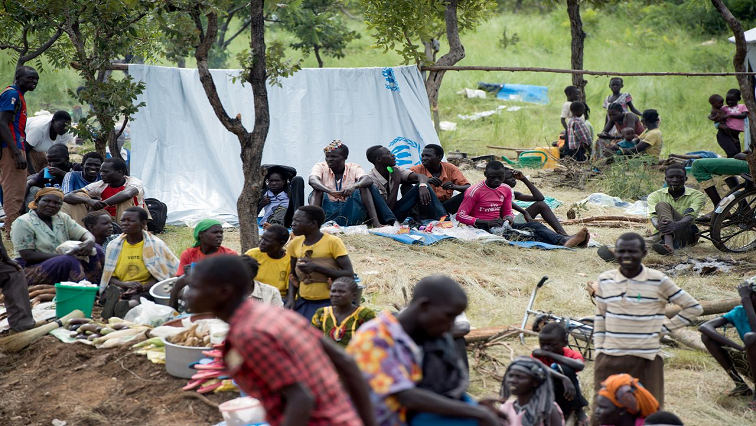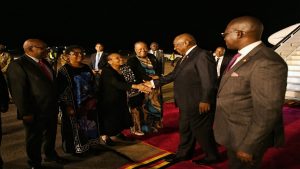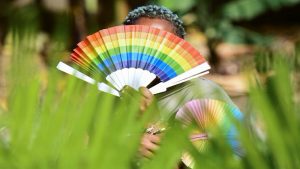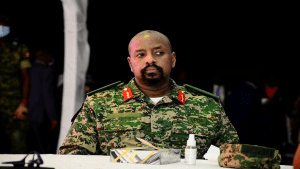Uganda has offered a safe haven to thousands of people fleeing escalating violence in the eastern Democratic Republic of Congo (DRC). The group was stranded in a remote, inaccessible area since late May, unable to cross the border due to the COVID-19 lockdown that restricted movement in and out of the country.
Following the report of these displaced persons stranded between the two countries, the Ugandan parliament agreed to temporarily open two border crossing points in the Zombo region on humanitarian grounds.
Thousands of people were stranded between escalating violence in eastern Congo and a closed border in the Zombo district of Uganda since May.
With Kampala stepping up to provide life-saving assistance despite concerns over the COVID-19 pandemic as the Minister for Relief, Disaster Preparedness and Refugees Hilary Obaloker Onek explained:
“We are not tired. We do not have much land, our country is small but we still allow them out of sympathy. I wish the international community also becomes sympathetic and helps these people. These are not our problems, these are the world’s problems – international problems,” says Obaloker Onek.
The United Nations Refugee Agency is partnering with Ugandan authorities to provide food and shelter while bolstering screening, testing and other measures to mitigate any spread of the virus.
Philippy Creppy of the Office of the High Commissioner for Refugees says they are putting accommodation and screening for COVID-19.
“We are putting, of course, accommodation, screening for COVID. As you know it is a very special emergency. It is the first time that people are crossing in the COVID situation. We have to be smart to put all in place, screening for security, screening for COVID and screening for Ebola. As you know there are still cases of Ebola in DRC. The team is doing its best to be ready,” says Creppy.
After initial screening, asylum seekers will be transported by UNHCR to an Institutional Quarantine Centre 13 kilometers from the border.
Following the mandatory quarantine period of 14 days, they will be relocated to existing refugee settlements. Two refugees who fled across the border had this to say:
“I hope Uganda can help me with anything, with clothes, food and medicine. The rebels are still attacking communities in Congo,” says one of the refugees.
The other one adds, “When the war started, we did not know what was happening. One morning I woke up and I saw the houses of the neighbouring communities being burned and the rebels were attacking people with machetes and killing them. I decided to run away because our neighbours were killed. Our crops and animals were all destroyed.”
The UN Security Council was recently briefed about an upswing in violence in certain parts of the DRC Eastern regions, amidst a fragile socio-economic environment complicated further by the COVID-19 virus.
The Secretary General’s Special Representative and Head of the UN Peacekeeping Mission MONUSCO Leila Zerrougui condemns any form of hate of speech that ignites violence..
“I condemn in the strongest terms attacks on displaced populations and the use of hate speech which incites further violence. Efforts to “de-solidarise” communities from these militias and preventing external actors from supporting their agendas will be vital to address the escalation of tensions in the area.
“To address these issues, MONUSCO continues to pursue a comprehensive approach, which combines active troop deployments to hotspot areas; community engagement; the development of targeted protection strategies; and the provision of critical, large-scale logistical support to FARDC operations,” says Zerrougui.
The intersection between conflicts and a deadly pandemic further complicating efforts to provide life-saving aid to the most vulnerable.






